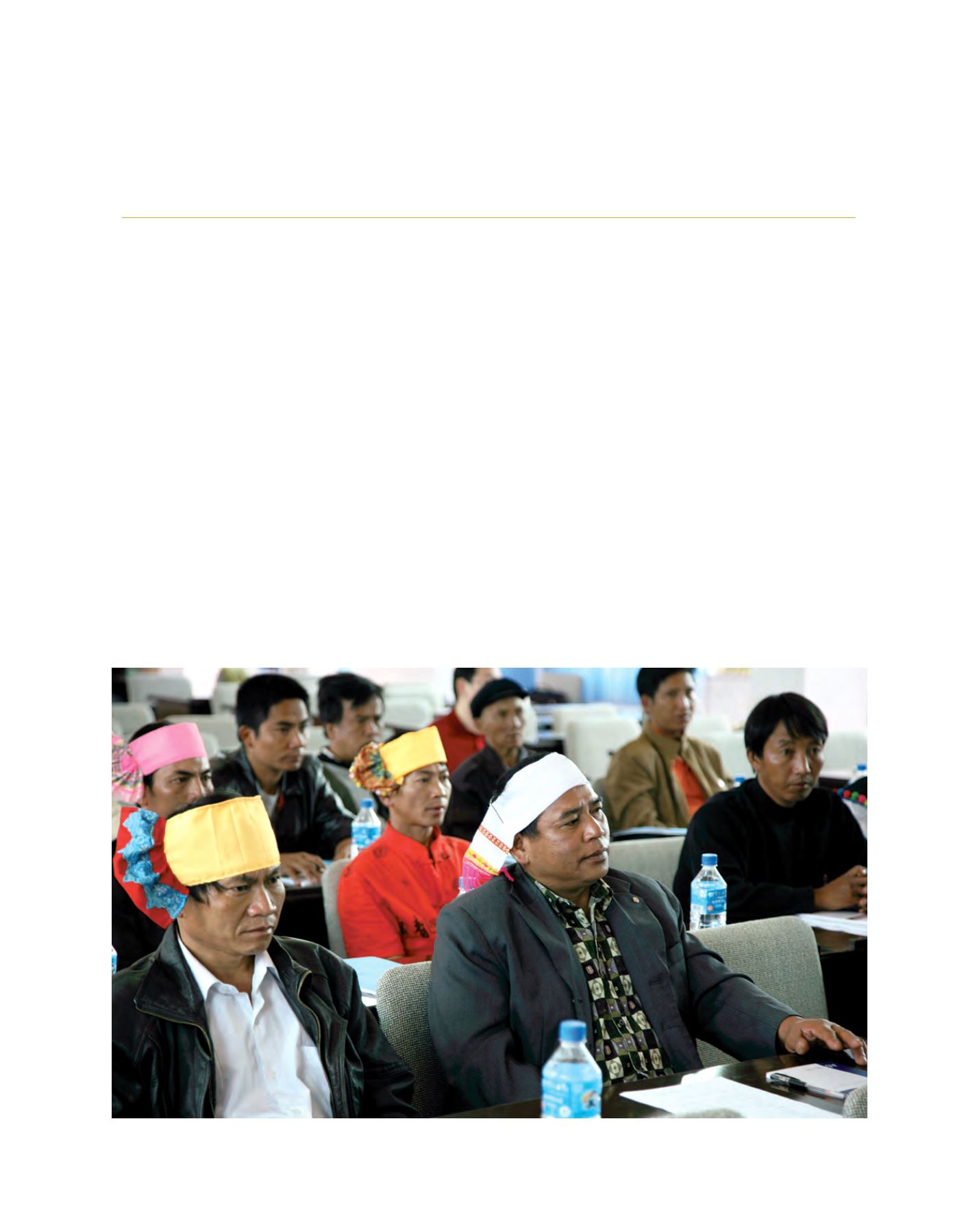

[
] 245
Restoring connectivity of people and
ecosystems in the Greater Mekong Subregion
David McCauley, Javed Mir and Rowena Soriaga, Asian Development Bank
F
orest ecosystem fragmentation and degradation is a major
concern in the Greater Mekong Subregion (GMS) where six
countries – Cambodia, Lao People’s Democratic Republic
(Lao PDR), Myanmar, People’s Republic China (PRC), Thailand
and Viet Nam – share political borders and services provided by
these ecosystems. Forests in the GMS help to support the liveli-
hood of 350 million people living in the Mekong River Basin, and
provide the basis for the cultural identity of numerous ethno-
linguistic groups and one of the world’s richest storehouses
of biodiversity. Though national governments have declared a
large number of terrestrial protected areas, the landscape has
become patchy and its ability to provide people’s needs and
critical habitats is increasingly threatened.
Economic and governance factors continue to drive this process.
During the past three decades, Cambodia, Lao PDR and Viet Nam have
experienced a series of political and economic upheavals, including
a period of excessive logging beginning in early 1980s.
By 1995, forest cover had been reduced in these coun-
tries to less than 60, 40 and 30 per cent respectively. As
Asia’s economy has grown, the intraregional trade in the
GMS, especially with PRC, has risen sharply. In particu-
lar, rapid expansion of road corridors has improved GMS
connectivity, enabling GMS countries to benefit from the
PRC’s economic boom.
While road and other infrastructure expansion has
brought economic benefits, it has also contributed to
pressures on the region’s forests. The biggest chal-
lenges to keeping natural forest landscapes in the GMS
are the large number of planned hydropower dams
and other infrastructure investment, forest conver-
sion to large-scale agriculture (rubber, palm oil) and
expansion of mining concessions. Localized challenges
include the illegal wildlife trade, forest clearance for
Activities of the BCI are a decentralized, community-oriented approach to resources management
Image: S. Griffiths
















